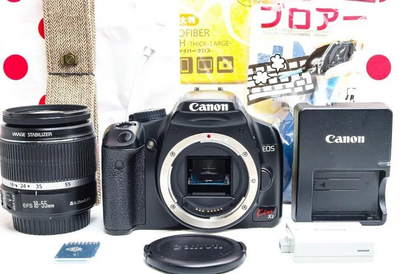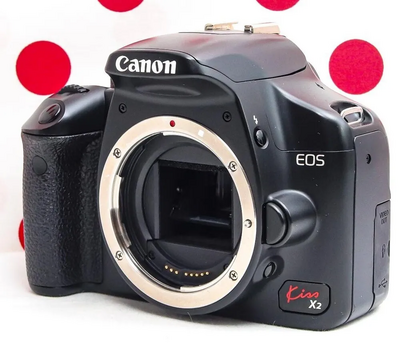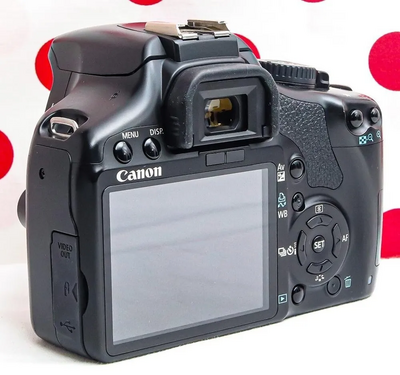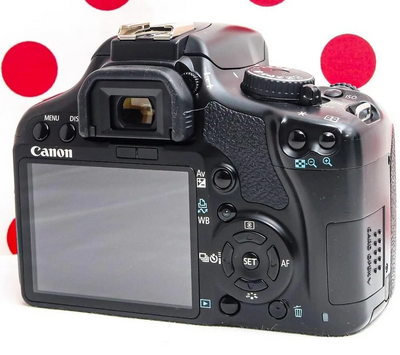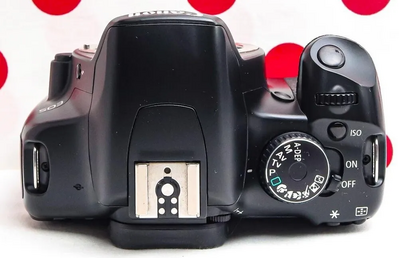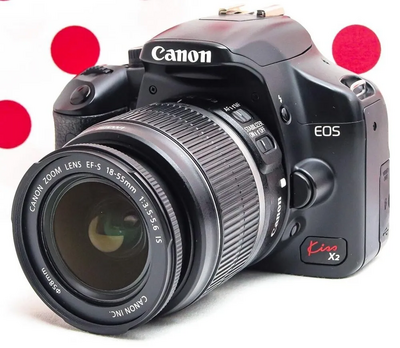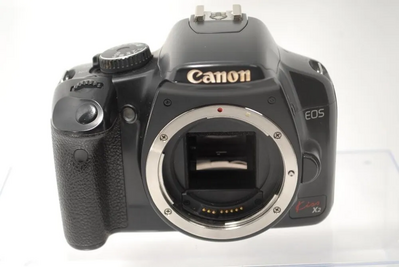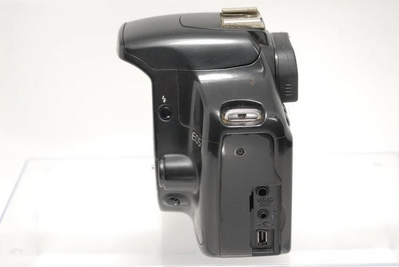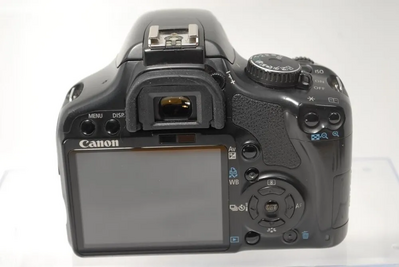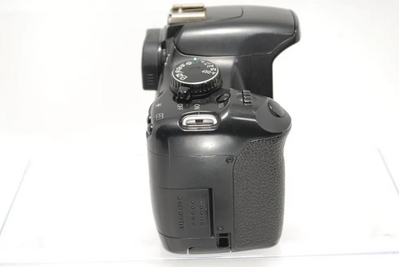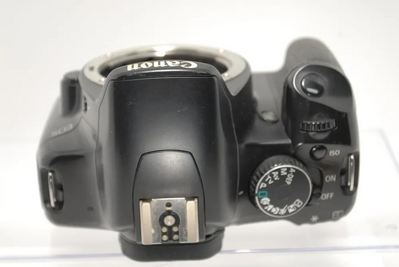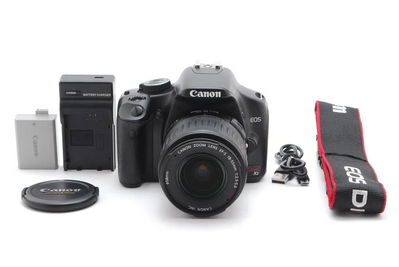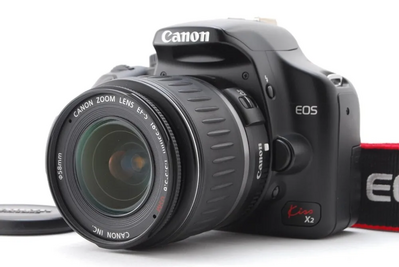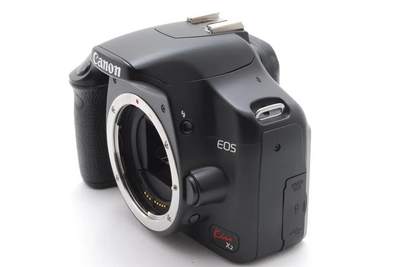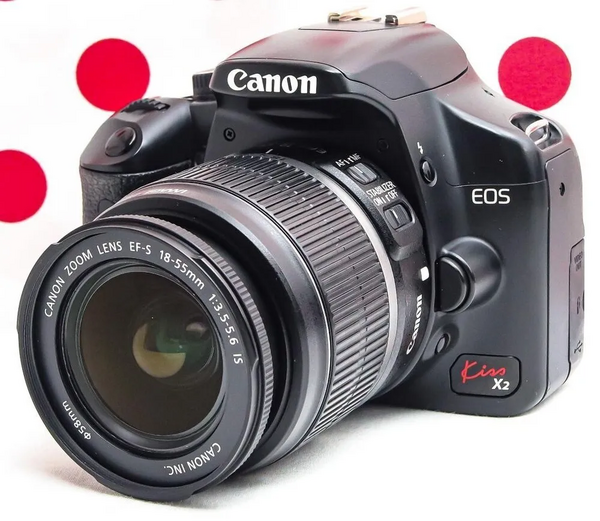
Canon EOS Kiss X2
| Brand | Canon 2008 |
| Model | Kiss X2 |
| Released Year | 2008 |
| Type | DSLR Cameras |
| Series | EOS |
| Color |
|
| Autofocus | Yes |
| Optical Zoom |
|
| Status | Discontinued |
Quick view
Overview
The Canon EOS Kiss X2 features a 10.1-megapixel APS-C CMOS sensor delivering high-resolution images with excellent clarity. It supports DIGIC III image processor for fast image processing and ISO sensitivity range from 100 to 1600, expandable to 3200. The camera sports a 3.0-inch LCD screen for easy image review and live view mode. Autofocus system includes 9 AF points with AI Servo tracking for moving subjects. Continuous shooting speed is up to 3 frames per second, suitable for capturing action shots. It employs SD/SDHC memory cards for storage and offers compatibility with Canon EF and EF-S lenses.
Specifications
| Maximum Aperture |
|
| Digital Zoom |
|
| Screen Size | 3 in |
| Color |
|
| MPN | NA |
| Battery Type | Lithium-Ion |
| Series | Canon EOS |
| Type |
|
| Maximum Resolution | 12.2 MP |
| Model |
|
| Optical Zoom |
|
| Features |
|
| Charger Included | No |
| Country/Region of Manufacture | Japan |
| UPC | Does not apply |
| Country | Japan |
| Connectivity | Smartphone transfer via SD card reader (Type-C compatible) |
| Category | Digital Camera |
| Lens |
|
| Megapixels |
|
| Weight | Lightweight and Compact |
| Charger | Included |
| Viewfinder | Yes |
| Autofocus | Yes |
| Accessories | Strap, Blower, Microfiber Cloth, 16GB SD Card, Smartphone |
| Flash | Built-in |
| Manual Focus | Yes |
| Compatibility | Compatible with |
Images
Key Advantages
The Canon EOS Kiss X2 is known for its lightweight and compact body, making it easy to carry during shoots. Its DIGIC III processor ensures fast and accurate image processing, enhancing overall camera performance. The 9-point autofocus system improves focus accuracy, especially for dynamic scenes. The live view mode allows users to compose shots using the LCD, improving shooting flexibility. The camera provides excellent image quality for both beginners and enthusiasts. Its compatibility with a wide range of Canon lenses provides versatility in photography styles.
Limitations
The EOS Kiss X2 lacks HD video recording functionality, limiting multimedia use. Its continuous shooting speed of 3 fps is moderate compared to newer models. The ISO performance, while adequate, may produce noise in low-light conditions at higher settings. The absence of in-body image stabilization means reliance on lens-based stabilization. Battery life is moderate, requiring spares for extended shooting sessions. The live view autofocus is slower compared to DSLR phase-detection autofocus.
FAQ
What is the sensor size of the Canon EOS Kiss X2?
The Canon EOS Kiss X2 features an APS-C sized CMOS sensor measuring approximately 22.2 x 14.8 mm.
Does the EOS Kiss X2 support video recording?
No, the EOS Kiss X2 does not support video recording; it is designed primarily for still photography.
What type of memory cards does the EOS Kiss X2 use?
The camera uses SD and SDHC memory cards for storage.
How many autofocus points does the EOS Kiss X2 have?
It has a 9-point autofocus system.
Is the Canon EOS Kiss X2 still in production?
No, the Canon EOS Kiss X2 was discontinued after its initial production run.
What is the maximum ISO sensitivity on the EOS Kiss X2?
The maximum ISO sensitivity is 1600, expandable up to 3200.
Can the EOS Kiss X2 use EF-S lenses?
Yes, it is compatible with both Canon EF and EF-S lenses.
Disclaimer
The content on is provided for general informational purposes only. We do not guarantee the accuracy, completeness, or reliability of any information, specifications, or visuals presented on the site.
is not responsible for any content, images, or data uploaded or shared by users. Users are solely responsible for the content they submit.
We may include links to third-party websites for convenience. We do not endorse or take responsibility for the content or policies of any external sites.
Use of the site is at your own risk. Always verify critical information independently before making decisions based on content from this website.

